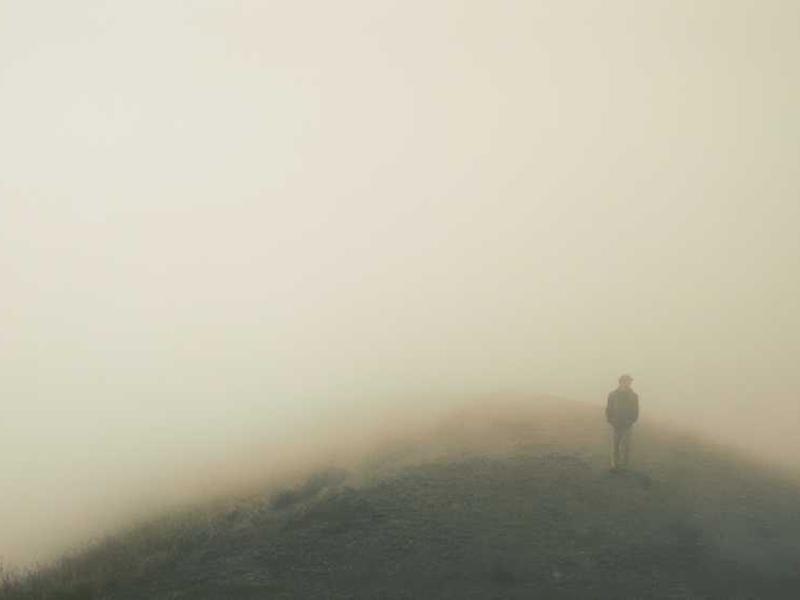"The Heretic's Tragedy: A Middle-Age Interlude"
The Lord, we look to once for all,
Is the Lord we should look at, all at once:
He knows not to vary, saith Saint Paul,
Nor the shadow of turning, for the nonce.
See him no other than as he is!
Give both the infinitudes their due--
Infinite mercy, but, I wis,
As infinite a justice too.
As infinite a justice too.
John, Master of the Temple of God,
Falling to sin the Unknown Sin,
What he bought of Emperor Aldabrod,
He sold it to Sultan Saladin:
Till, caught by Pope Clement, a-buzzing there,
Hornet-prince of the mad wasps' hive,
And clipt of his wings in Paris square,
They bring him now to be burned alive.
[And wanteth there grace of lute or
clavicithern, ye shall say to
confirm him who singeth--
We bring John now to be burned alive.
In the midst is a goodly gallows built;
'Twixt fork and fork, a stake is stuck;
But first they set divers tumbrils a-tilt,
Make a trench all round with the city muck;
Inside they pile log upon log, good store;
Faggots no few, blocks great and small,
Reach a man's mid-thigh, no less, no more,--
For they mean he should roast in the sight of all.
We mean he should roast in the sight of all.
Good sappy bavins that kindle forthwith;
Billets that blaze substantial and slow;
Pine-stump split deftly, dry as pith;
Larch-heart that chars to a chalk-white glow:
They up they hoist me John in a chafe,
Sling him fast like a hog to scorch,
Spit in his face, then leap back safe,
Sing "Laudes" and bid clap-to the torch.
Laus deo--who bids clap-to the torch.
John of the Temple, whose fame so bragged,
Is burning alive in Paris square!
How can he curse, if his mouth is gagged?
Or wriggle his neck, with a collar there?
Or heave his chest, which a band goes round?
Or threat with his fist, since his arms are spliced?
Or kick with his feet, now his legs are bound?
--Thinks John, I will call upon Jesus Christ.
Jesus Christ--John had bought and sold,
Jesus Christ--John had eaten and drunk;
To him, the Flesh meant silver and gold.
(Salva reverentia.)
Now it was, "Saviour, bountiful lamb,
"I have roasted thee Turks, though men roast me!
"See thy servant, the plight wherein I am!
"Art thou a saviour? Save thou me!"
'Tis John the mocker cries, "Save thou me!"
Who maketh God's menace an idle word?
--Saith, it no more means what it proclaims,
Than a damsel's threat to her wanton bird?
For she too prattles of ugly names.
--Saith, he knoweth but one thing--what he knows?
That God is good and the rest is breath;
Why else is the same styled Sharon's rose?
Once a rose, ever a rose, he saith.
O, John shall yet find a rose, he saith!
Alack, there be roses and roses, John!
Some, honied of taste like your leman's tongue:
Some, bitter; for why? (roast gaily on!)
Their tree struck root in devil's-dung.
When Paul once reasoned of righteousness
And of temperance and of judgment to come,
Good Felix trembled, he could no less:
John, snickering, crook'd his wicked thumb.
What cometh to John of the wicked thumb?
Ha ha, John plucketh now at his rose
To rid himself of a sorrow at heart!
Lo,--petal on petal, fierce rays unclose;
Anther on anther, sharp spikes outstart;
And with blood for dew, the bosom boils;
And a gust of sulphur is all its smell;
And lo, he is horribly in the toils
Of a coal-black giant flower of hell!
What maketh heaven, That maketh hell.
So, as John called now, through the fire amain,
On the Name, he had cursed with, all his life--
To the Person, he bought and sold again--
For the Face, with his daily buffets rife--
Feature by feature It took its place:
And his voice, like a mad dog's choking bark,
At the steady whole of the Judge's face--
Died. Forth John's soul flared into the dark.
God help all poor souls lost in the dark!
— Robert Browning
#poemoftheday #cityvibes #kericho"The Heretic's Tragedy: A Middle-Age Interlude"
The Lord, we look to once for all,
Is the Lord we should look at, all at once:
He knows not to vary, saith Saint Paul,
Nor the shadow of turning, for the nonce.
See him no other than as he is!
Give both the infinitudes their due--
Infinite mercy, but, I wis,
As infinite a justice too.
As infinite a justice too.
John, Master of the Temple of God,
Falling to sin the Unknown Sin,
What he bought of Emperor Aldabrod,
He sold it to Sultan Saladin:
Till, caught by Pope Clement, a-buzzing there,
Hornet-prince of the mad wasps' hive,
And clipt of his wings in Paris square,
They bring him now to be burned alive.
[And wanteth there grace of lute or
clavicithern, ye shall say to
confirm him who singeth--
We bring John now to be burned alive.
In the midst is a goodly gallows built;
'Twixt fork and fork, a stake is stuck;
But first they set divers tumbrils a-tilt,
Make a trench all round with the city muck;
Inside they pile log upon log, good store;
Faggots no few, blocks great and small,
Reach a man's mid-thigh, no less, no more,--
For they mean he should roast in the sight of all.
We mean he should roast in the sight of all.
Good sappy bavins that kindle forthwith;
Billets that blaze substantial and slow;
Pine-stump split deftly, dry as pith;
Larch-heart that chars to a chalk-white glow:
They up they hoist me John in a chafe,
Sling him fast like a hog to scorch,
Spit in his face, then leap back safe,
Sing "Laudes" and bid clap-to the torch.
Laus deo--who bids clap-to the torch.
John of the Temple, whose fame so bragged,
Is burning alive in Paris square!
How can he curse, if his mouth is gagged?
Or wriggle his neck, with a collar there?
Or heave his chest, which a band goes round?
Or threat with his fist, since his arms are spliced?
Or kick with his feet, now his legs are bound?
--Thinks John, I will call upon Jesus Christ.
Jesus Christ--John had bought and sold,
Jesus Christ--John had eaten and drunk;
To him, the Flesh meant silver and gold.
(Salva reverentia.)
Now it was, "Saviour, bountiful lamb,
"I have roasted thee Turks, though men roast me!
"See thy servant, the plight wherein I am!
"Art thou a saviour? Save thou me!"
'Tis John the mocker cries, "Save thou me!"
Who maketh God's menace an idle word?
--Saith, it no more means what it proclaims,
Than a damsel's threat to her wanton bird?
For she too prattles of ugly names.
--Saith, he knoweth but one thing--what he knows?
That God is good and the rest is breath;
Why else is the same styled Sharon's rose?
Once a rose, ever a rose, he saith.
O, John shall yet find a rose, he saith!
Alack, there be roses and roses, John!
Some, honied of taste like your leman's tongue:
Some, bitter; for why? (roast gaily on!)
Their tree struck root in devil's-dung.
When Paul once reasoned of righteousness
And of temperance and of judgment to come,
Good Felix trembled, he could no less:
John, snickering, crook'd his wicked thumb.
What cometh to John of the wicked thumb?
Ha ha, John plucketh now at his rose
To rid himself of a sorrow at heart!
Lo,--petal on petal, fierce rays unclose;
Anther on anther, sharp spikes outstart;
And with blood for dew, the bosom boils;
And a gust of sulphur is all its smell;
And lo, he is horribly in the toils
Of a coal-black giant flower of hell!
What maketh heaven, That maketh hell.
So, as John called now, through the fire amain,
On the Name, he had cursed with, all his life--
To the Person, he bought and sold again--
For the Face, with his daily buffets rife--
Feature by feature It took its place:
And his voice, like a mad dog's choking bark,
At the steady whole of the Judge's face--
Died. Forth John's soul flared into the dark.
God help all poor souls lost in the dark!
— Robert Browning
#poemoftheday #cityvibes #kericho












